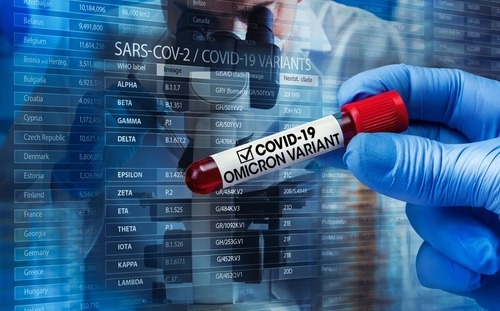
Moderna announced last week a strategy for addressing the new Omicron variant of COVID-19, including a new booster vaccine and studies of boosters that have already anticipated its mutations.
The rushed strategy announcement came in the wake of closing borders and the World Health Organization’s official declaration of Omicron as a variant of concern. The variant stoked fears due to mutations that may grant it increased transmissibility and the ability to evade existing vaccines and natural immunities. While the variant is too new to yet know if current boosters, such as those offered by Moderna, can neutralize it, the company quickly moved to assure that data is on the way.
“From the beginning, we have said that as we seek to defeat the pandemic, it is imperative that we are proactive as the virus evolves,” Stéphane Bancel, CEO of Moderna, said. “The mutations in the Omicron variant are concerning, and for several days, we have been moving as fast as possible to execute our strategy to address this variant. We have three lines of defense that we are advancing in parallel: we have already evaluated a higher dose booster of mRNA-1273 (100 µg), second, we are already studying two multi-valent booster candidates in the clinic that were designed to anticipate mutations such as those that have emerged in the Omicron variant and data is expected in the coming weeks, and third, we are rapidly advancing a Omicron-specific booster candidate (mRNA-1273.529).”
Starting at the last point, the new candidate will continue in the line of variant-specific boosters for the Beta and Delta strains. Moderna noted that it has demonstrated the ability to advance such candidates to clinical testing within 90 days. Yet quicker hopes might lie with those boosters already in progress, including a higher dose booster of the original mRNA-1273 and two multi-valent candidates designed to address the same types of mutations that have made Omicron so dangerous.
Currently, Moderna’s mRNA-1273 booster vaccine is authorized for 50 µg doses. However, the company just finished testing a 100 µg dose on 306 participants in a safety and immunogenicity trial. An evaluation by the National Institutes of Health (NIH) determined that candidate provided the highest neutralizing titers against prior SARS-CoV-2 strains, and now, Moderna hopes to test it against Omicron.
Separately, the multi-valent boosters — mRNA-1273.211 and mRNA-1273.213 — have each been tested with the Beta variant, which included several of the mutations known to power Omicron. A safety and immunogenicity study of mRNA-1273.211 has already been completed at the 50 µg (N=300) and 100 µg (N=584) dose levels, while the Beta and Delta-focused mRNA-1273.213 was tested at the 100 µg dose level. In the latter’s case, plans are underway to test a 50 µg dose on approximately 584 participants.




